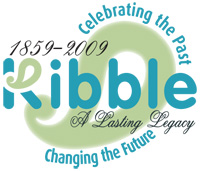themes
themes
Page 1
1 | 2 | 3 | 4

Introduction
Although Kibble was originally designated a reformatory school, the care and protection of children was also part of its remit and a concern from the beginning, as our early records demonstrate. Admission records have numerous cases of children being admitted for care and protection, rather than because of any serious wrongdoing on their part. Although there are many cases of deliberate maltreatment or neglect by parents, in some cases this was due to very difficult circumstances such as the death of one or both parents, poverty, or very large families, resulting in overcrowded and sometimes squalid home conditions; in some instances there was a combination of several of these factors. The care aspects of the service developed gradually over the years as understanding, attitudes and policies changed, and the service moved increasingly from a justice-based model to one grounded on a welfare basis.
Early Care
Kibble’s first Admissions Register (1859-1880) provides some insight into the difficulties and poor home conditions faced by some of the boys who were sent here during the nineteenth century:
- Parents very poor but honest and well conducted. They have five children. (Alexander Cameron, age 12, admitted 20th August 1860, 15 days in prison and 4 years in the reformatory for stealing biscuits)
- Parents both dead. Boy has been for five years an inmate of the Barony Poor’s House, Glasgow. (George Bond, age 13,admitted 4th February 1861, 14 days in prison and 3 years in the reformatory for stealing money )
- Father dead, mother deserted her family and went to America. The boy has been brought up in the Abbey Poor’s House. (William Tonnar, age 14, admitted 15th February 1861,14 days in prison and 4 years in the reformatory for obtaining goods on false pretences)
- Father is a labourer breaking stones on the road and earning about 10 shillings a week. (Modern equivalent would be worth approximately £33). Has seven children. (Samuel Allison, age 10, admitted 27th January 1862, 15 days in prison and 4 years in the reformatory for stealing 13 shillings)
- Father is a calico printer. Is very irregularly employed and his earnings small. Has a family of ten. (Alex McCluskey, age 15, admitted 9th March 1865, 14 days in prison and 3 years in the reformatory for stealing brassbrushes)
- Mother a widow and washerwoman. Industrious and respectable. Has six other children. (Thomas Brown, age13, admitted 7th October 1867, 14 days in prison and 3 years in the reformatory for breach of trust and embezzlement)
- Mother dead. Father a bad character. (Malcolm Hassan, age 9, admitted 30th October 1867, 30 days in prison and 4 years in the reformatory for theft of money)
- Last Residence: Gipsy Tent near Bridge of Weir. (Alexander MacKenzie, age 12, admitted 9th June 1871, 10 days in prison and 5 years in the reformatory for theft of a canary)
Although these records give an indication of the poverty and hardship that some of the boys faced at this time, unfortunately, there is little documentary evidence in Kibble’s early archive of what attempts were made in the reformatory to address these issues. We do know, however, that the boys were fed, clothed, taught to read and write, and trained in a trade: an improvement on what was available to many of them in their home lives. A daily timetable from an 1881 Board of Trustees Report illustrates the structure of a typical day in Kibble at that time:
5.30 - 6am |
Rise; wash; dress |
6 - 9am |
School; worship |
9 - 10am |
Breakfast; play |
10am - 1pm |
Work |
1 - 2 pm |
Dinner; play |
2 - 6pm |
Work |
6 - 7pm |
Wash; supper; play |
7 - 8.30pm |
School; worship |
8.30 - 9pm |
Prepare for bed |
9pm |
Bed |
The routine seems fairly rigid, nonetheless it provided some structure and stability in the lives of the boys, something that had been lacking in many cases. Work and training was clearly prioritised over education; seven hours in the day were given over to work but only four and a half were devoted to schooling, and ‘worship’ was also incorporated into that time. Although some time was allowed for play, this was only three hours per day, which included time for meals and for the boys to wash. The overall impression is one of a busy and tiring day with little free time. However, clear provision was made for regular meals and sleep. Time was also allocated for personal hygiene, although written records and later oral histories indicate that facilities were very basic and the boys were afforded little privacy in this respect.

